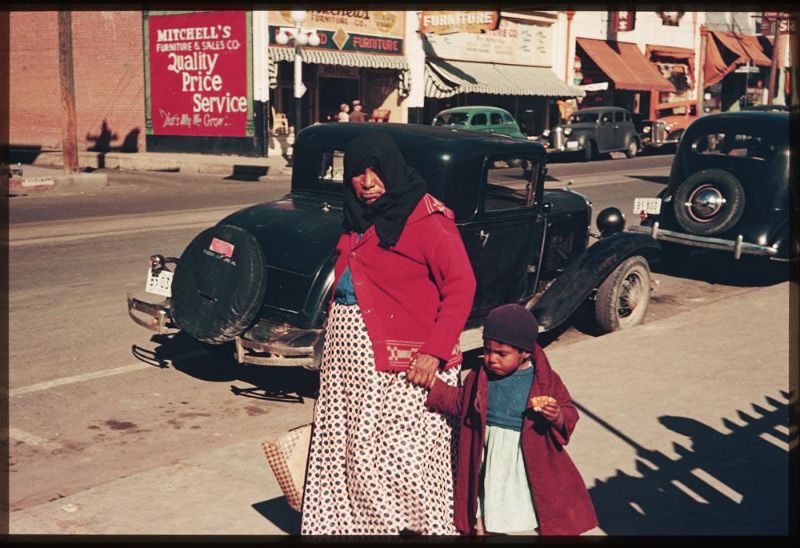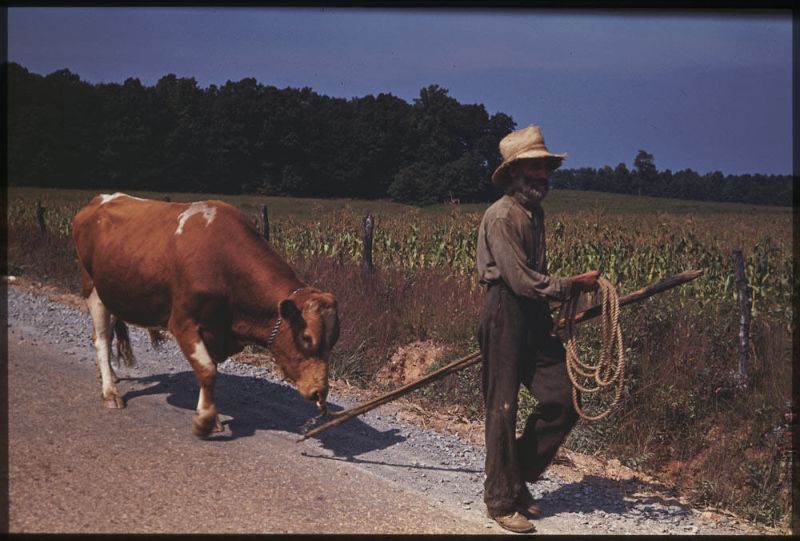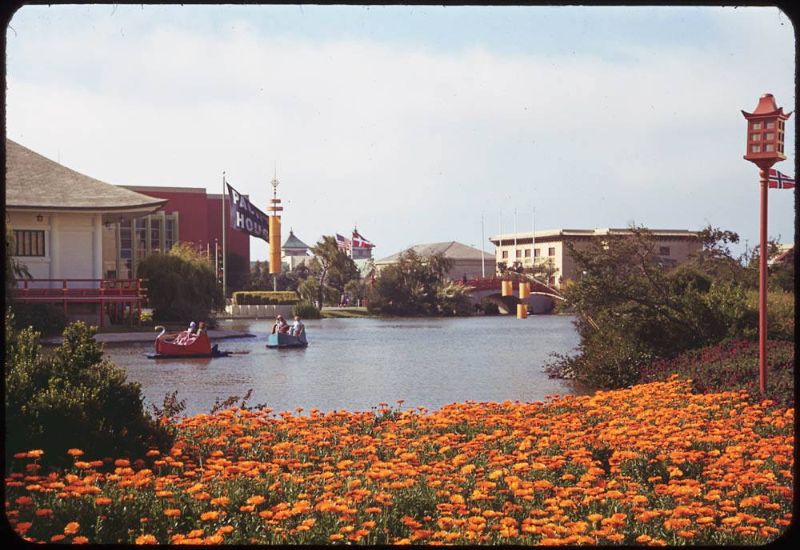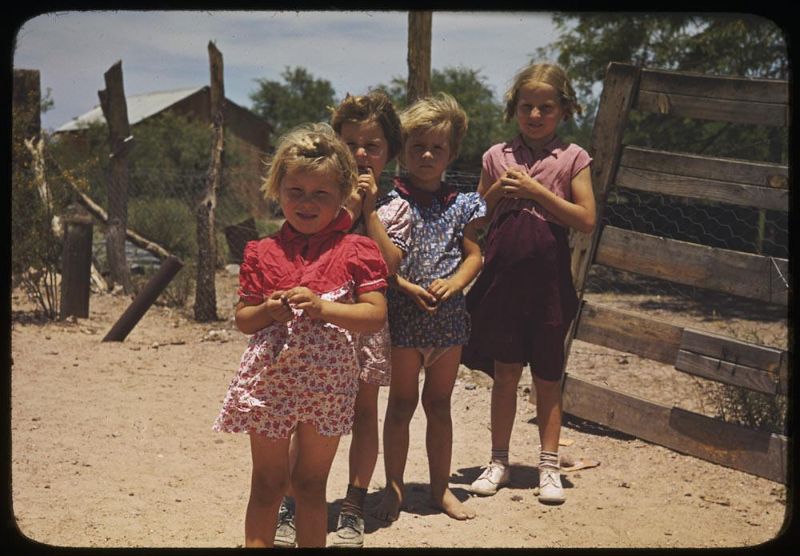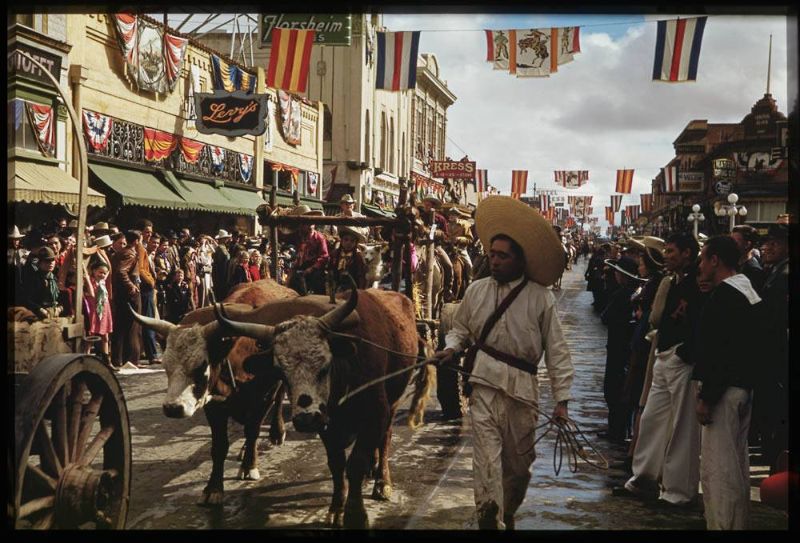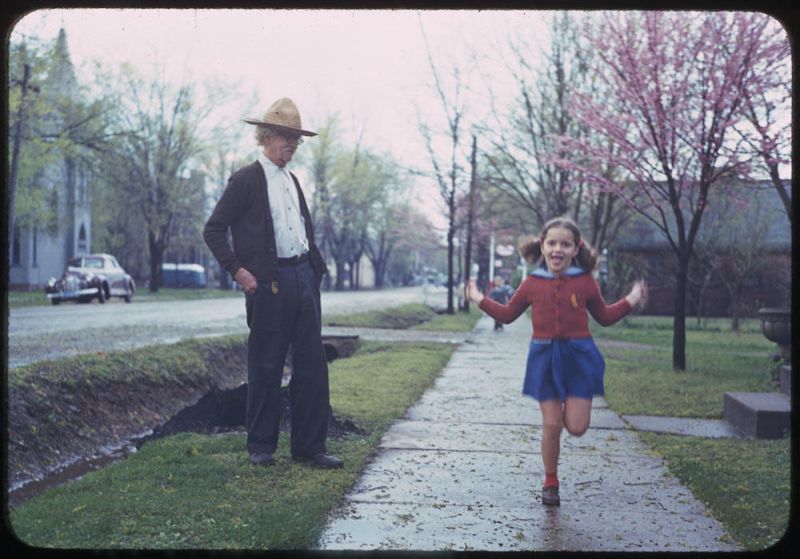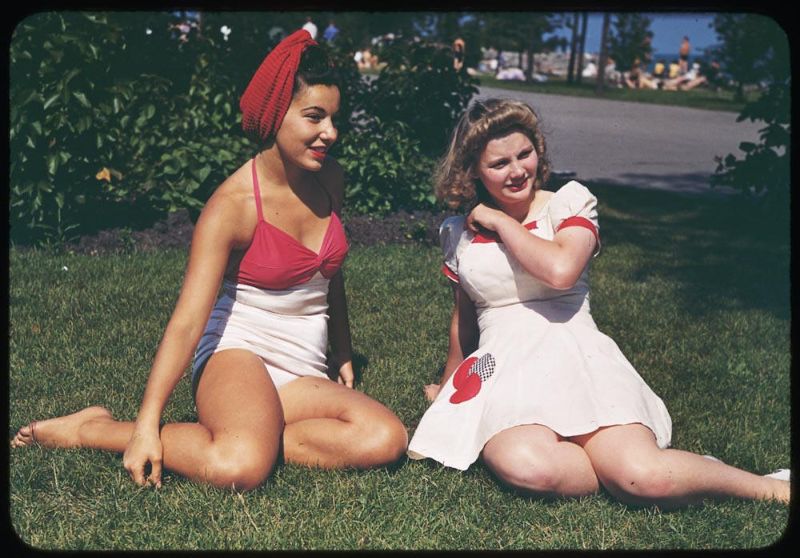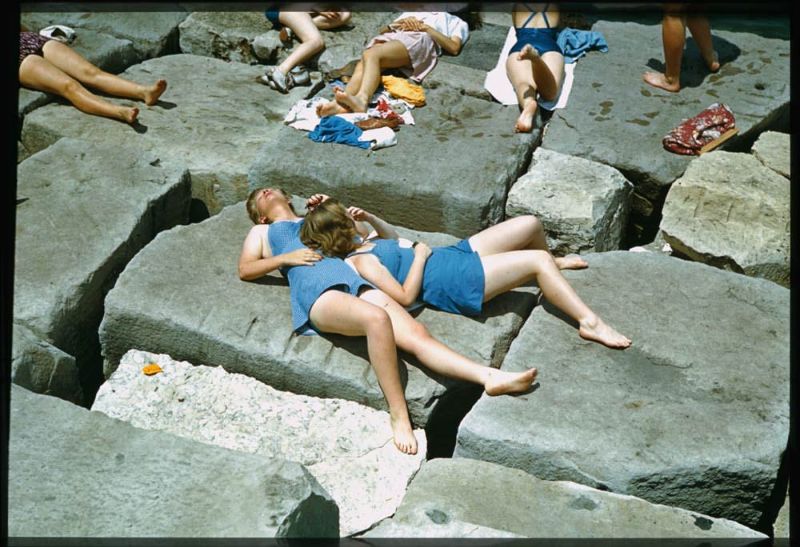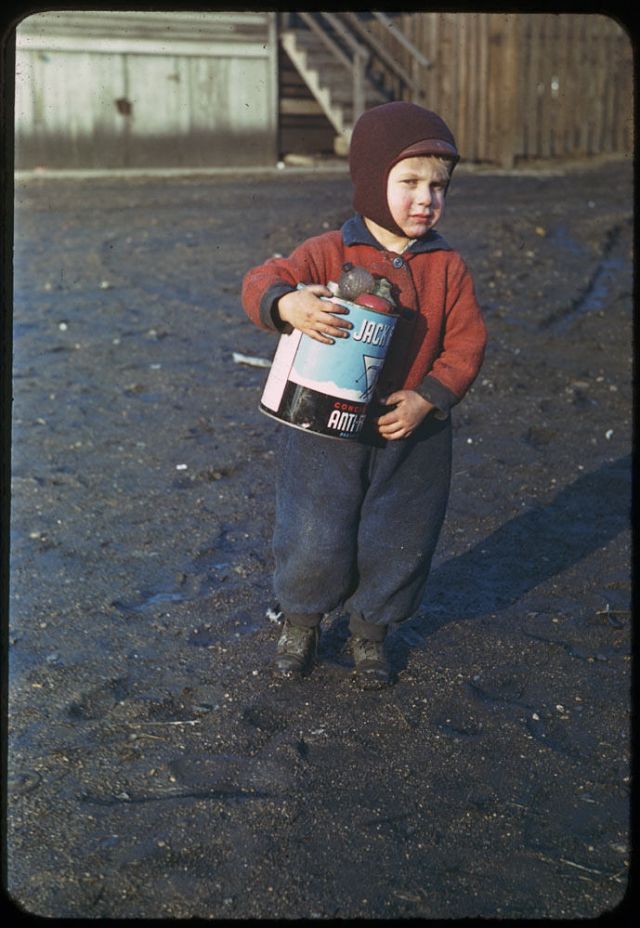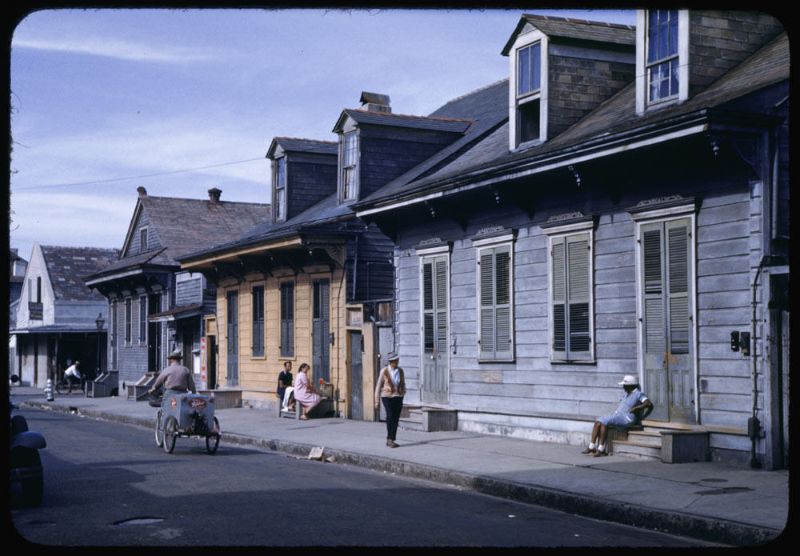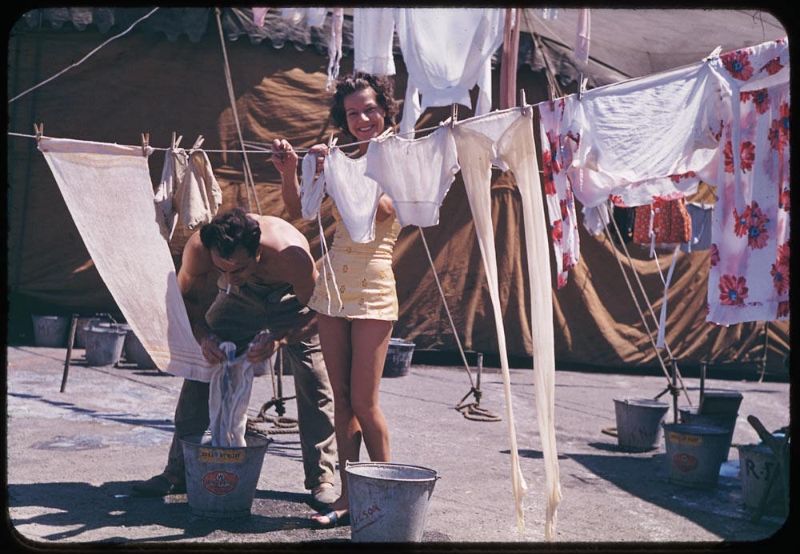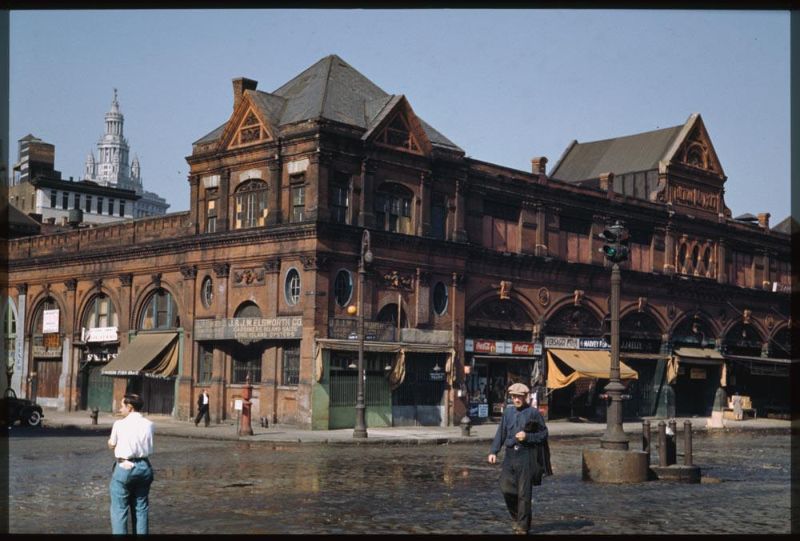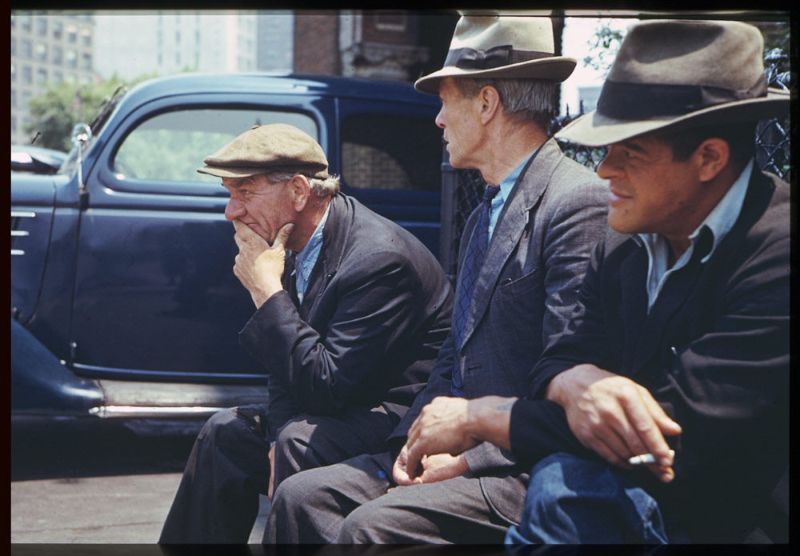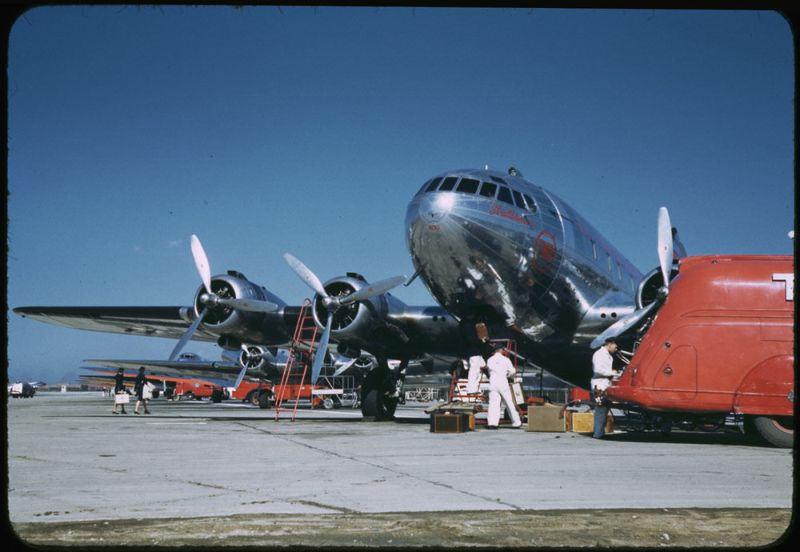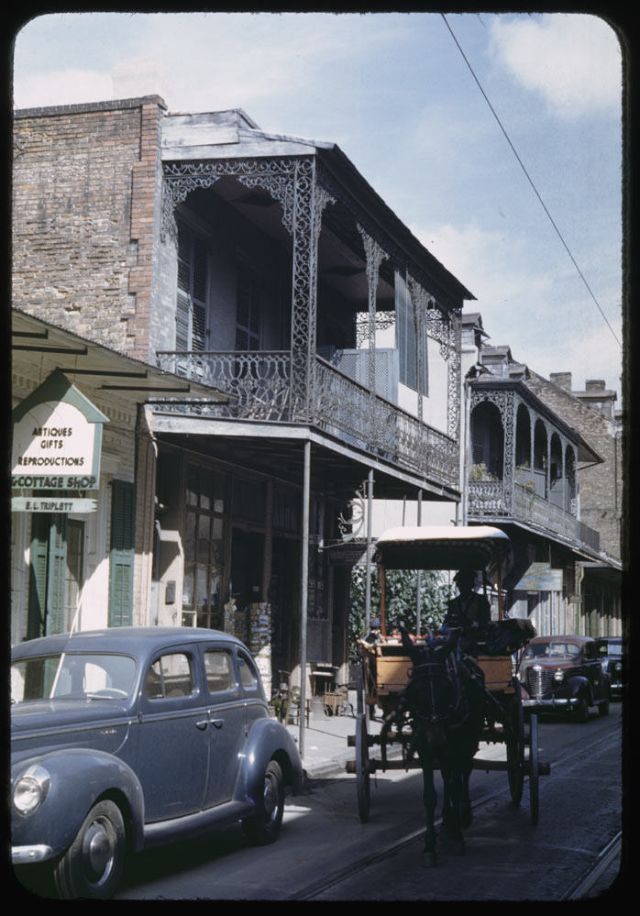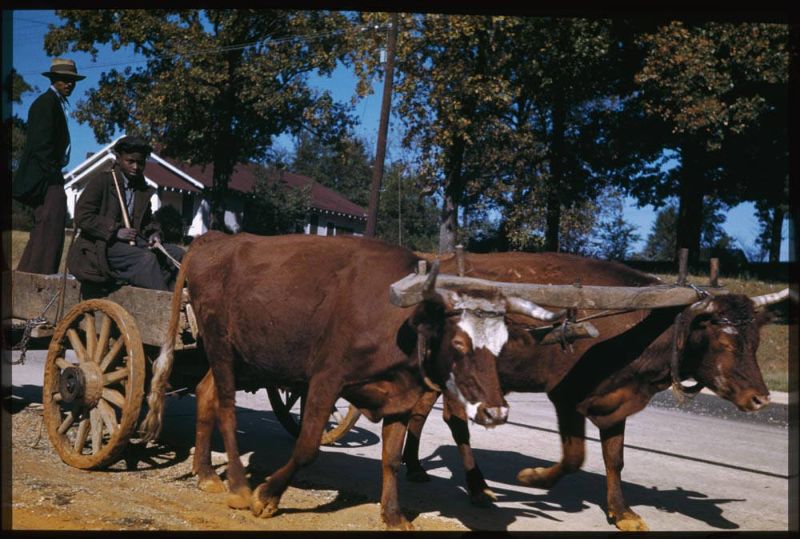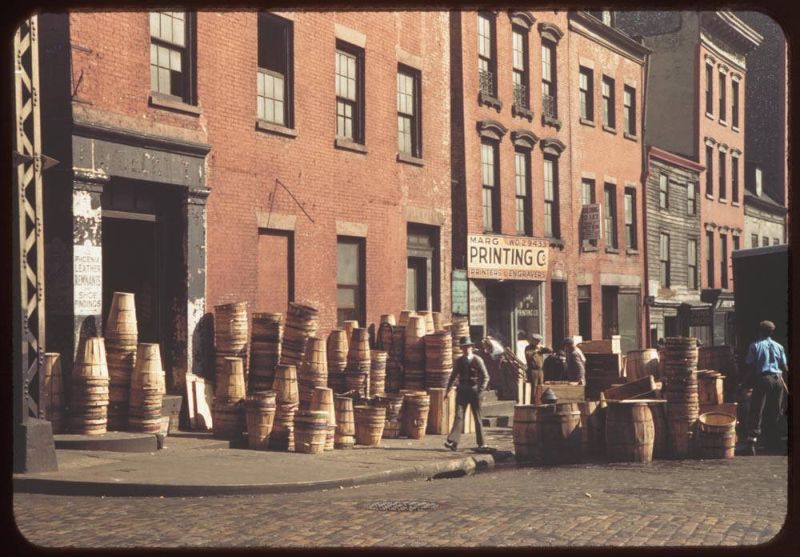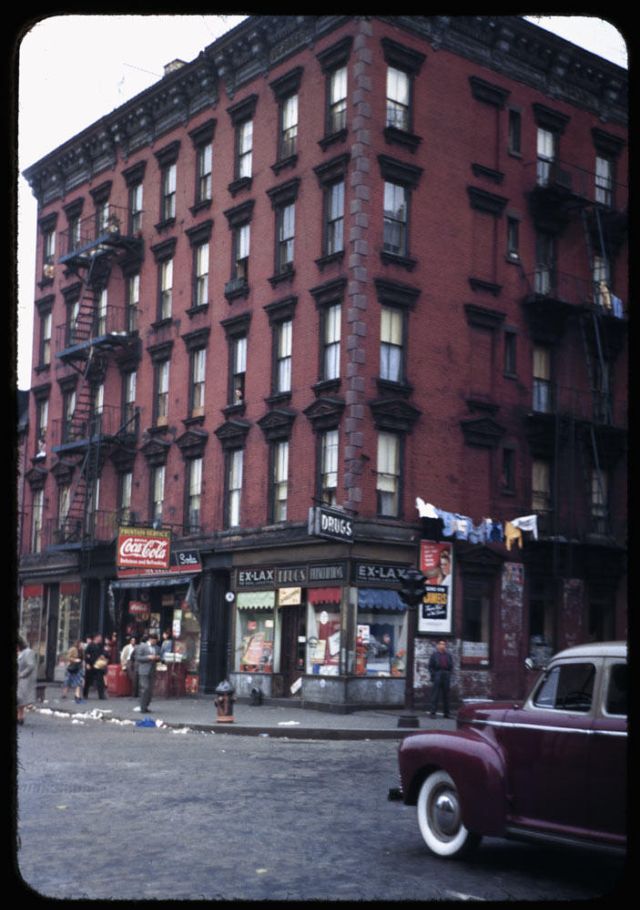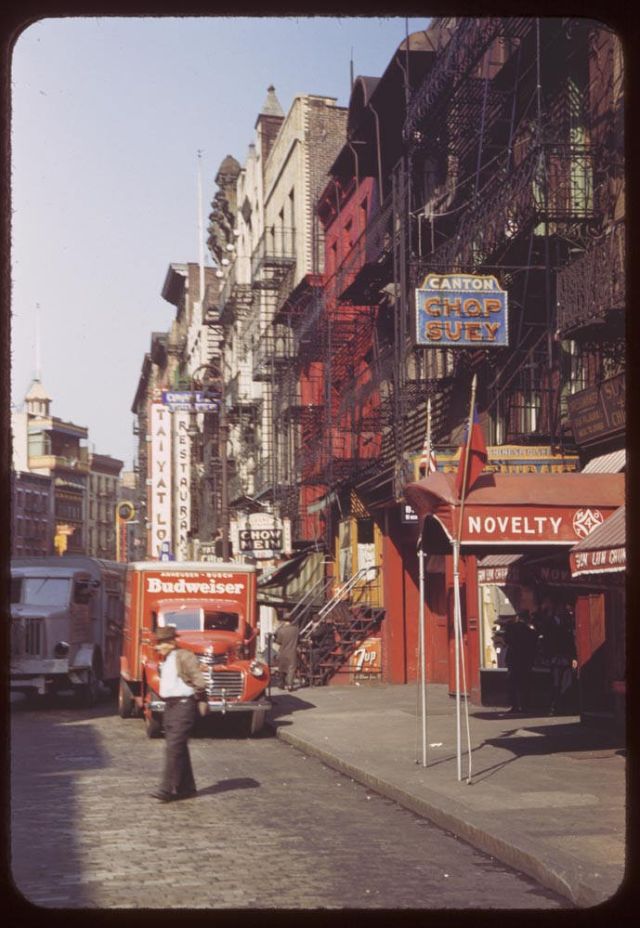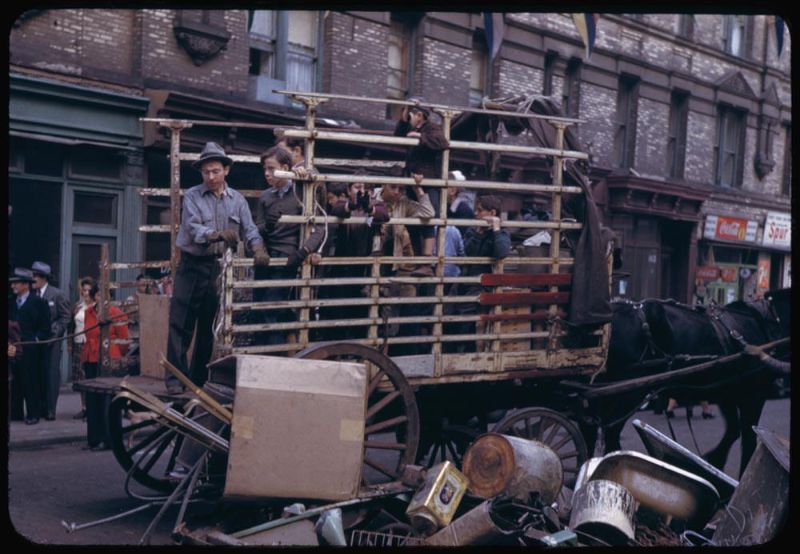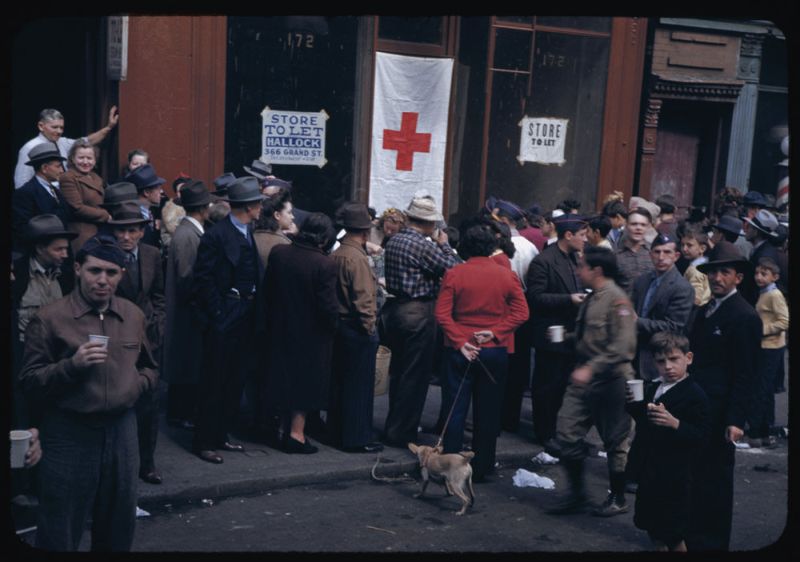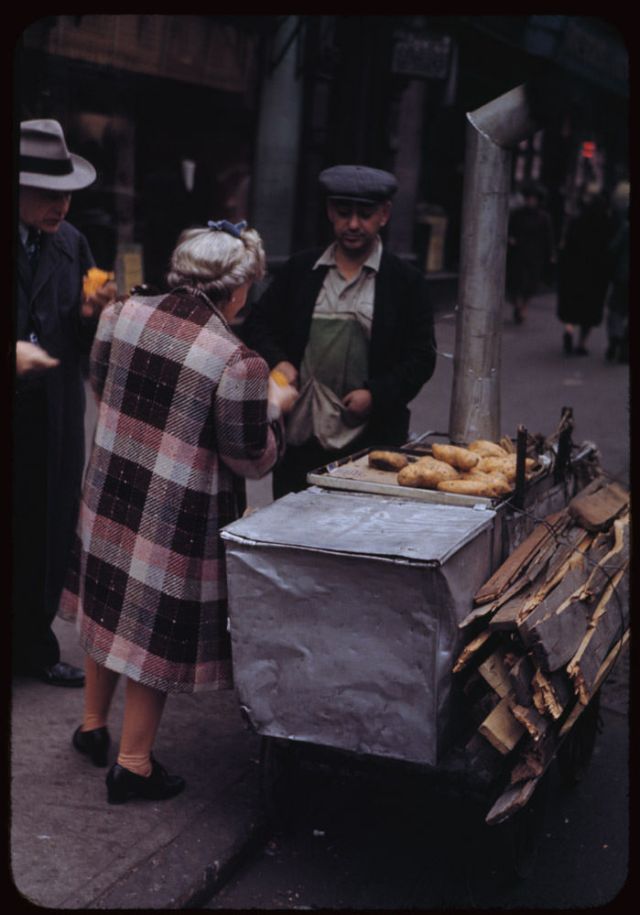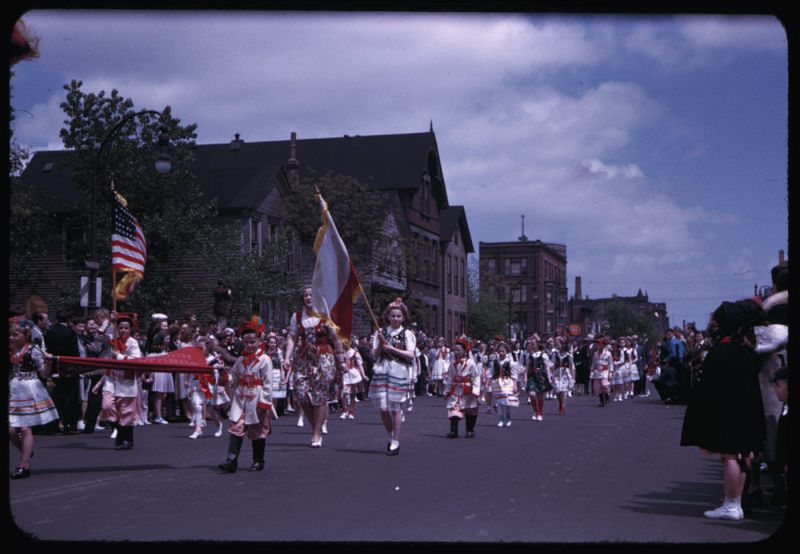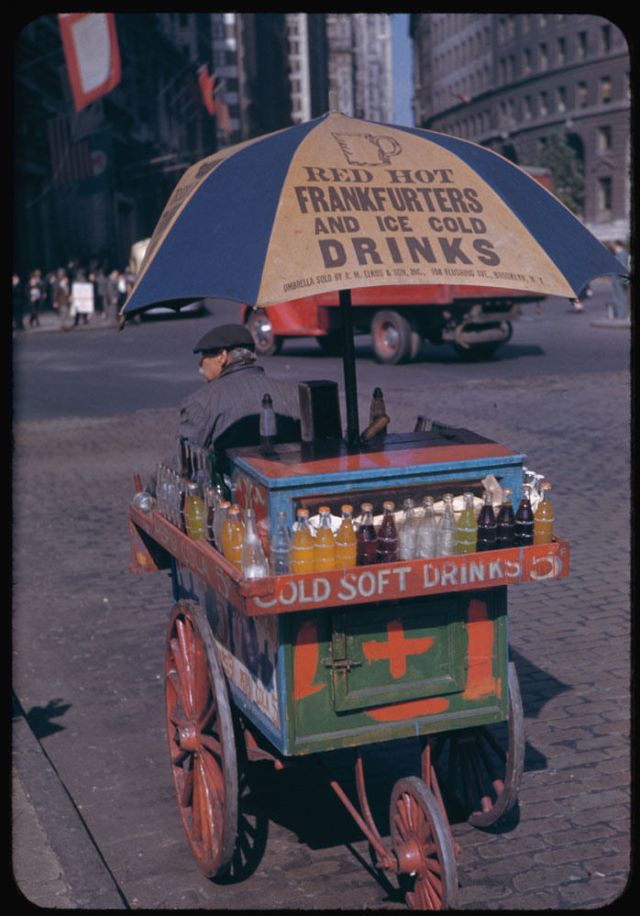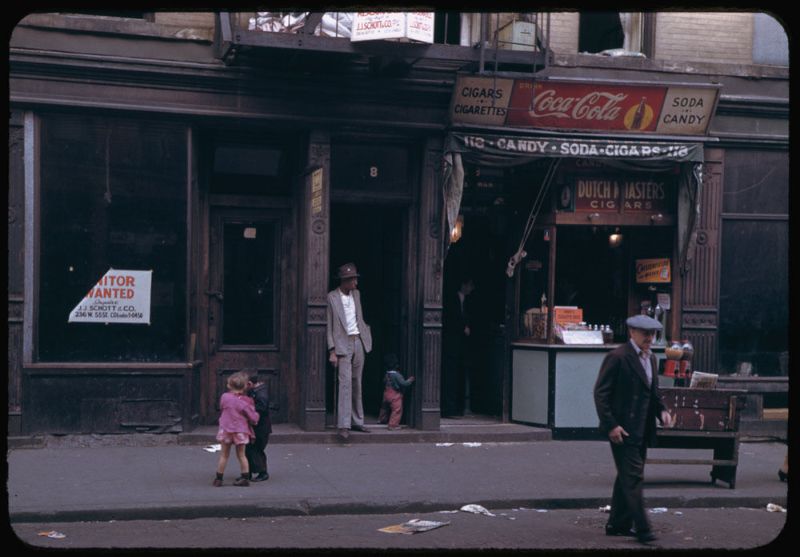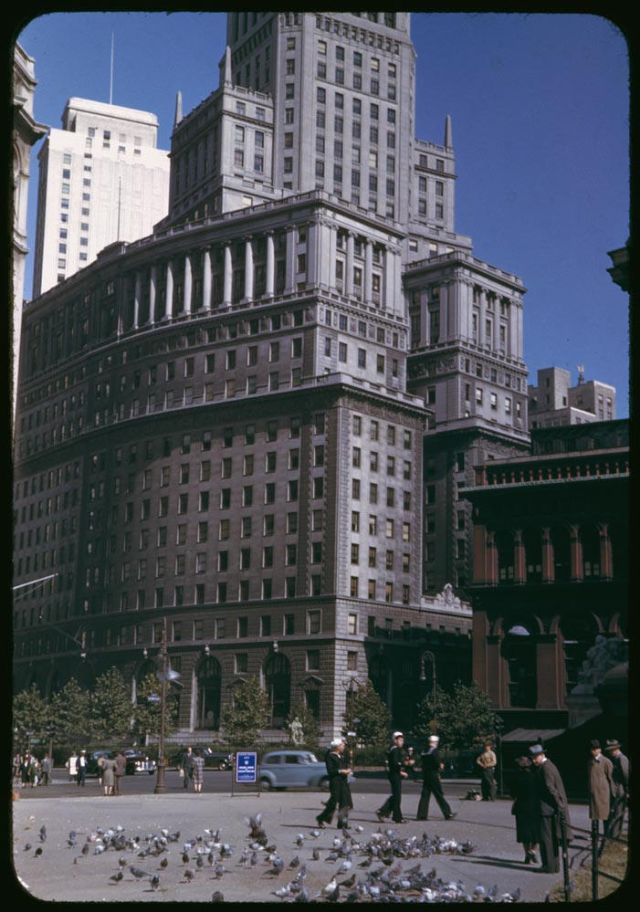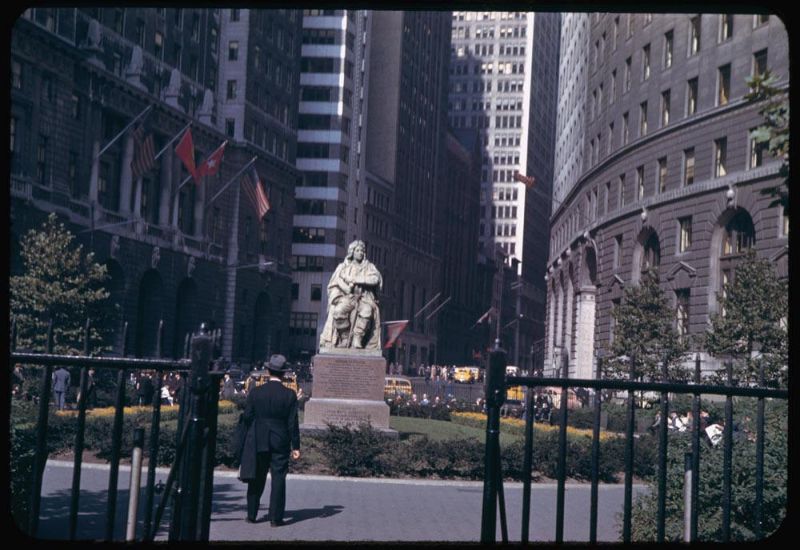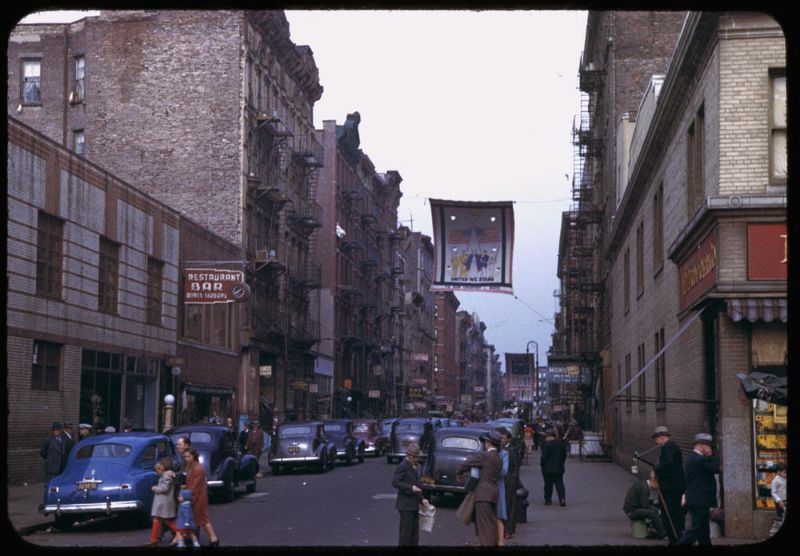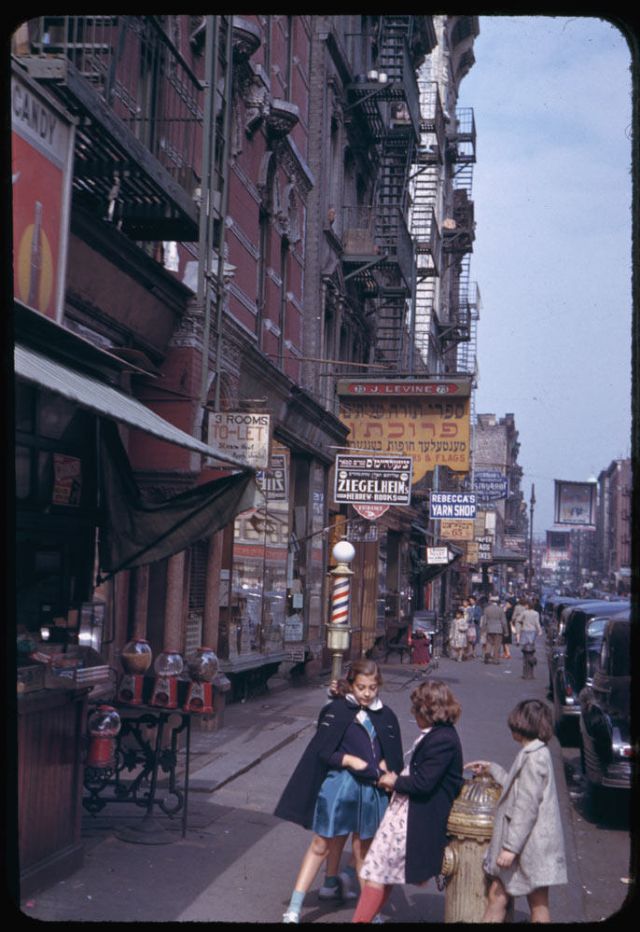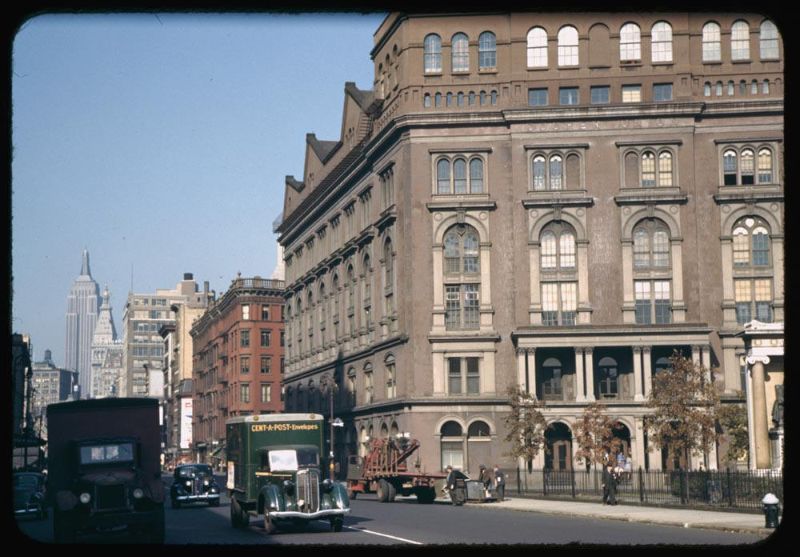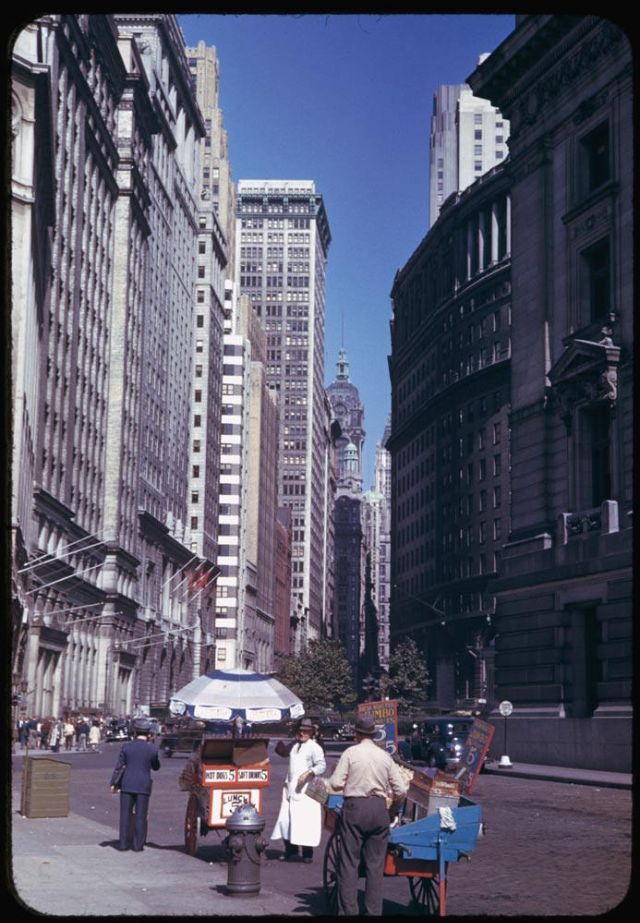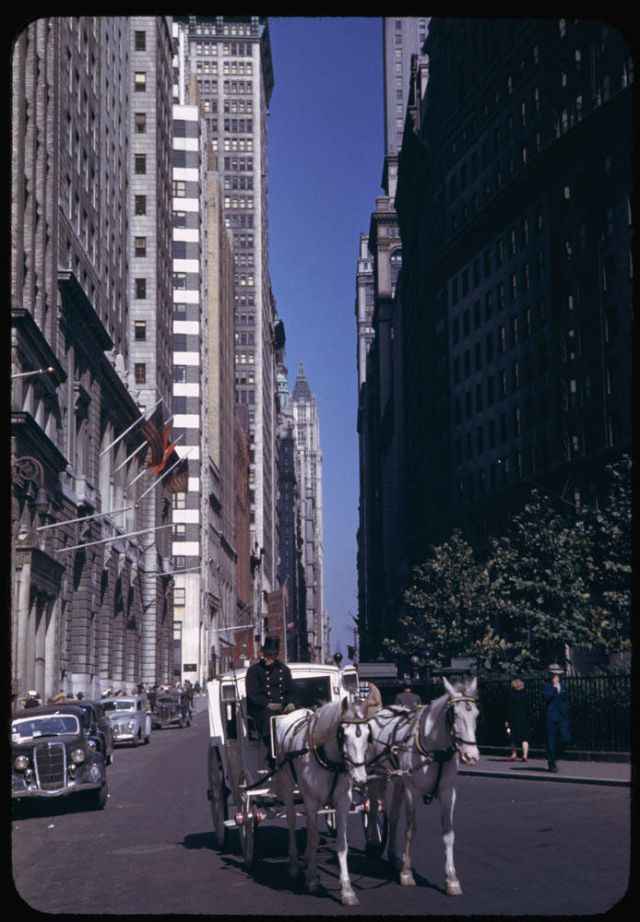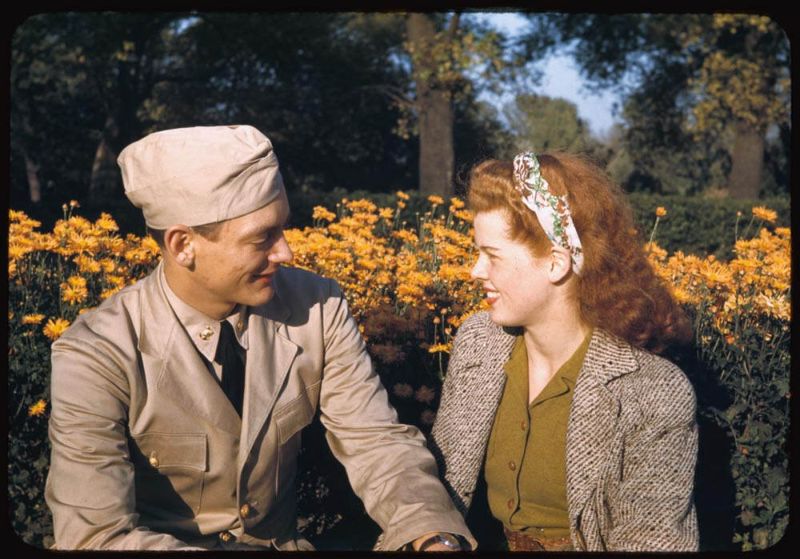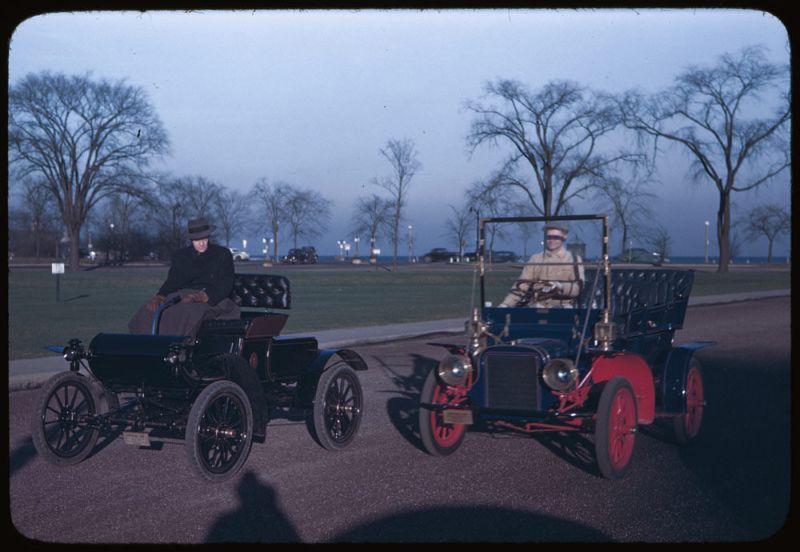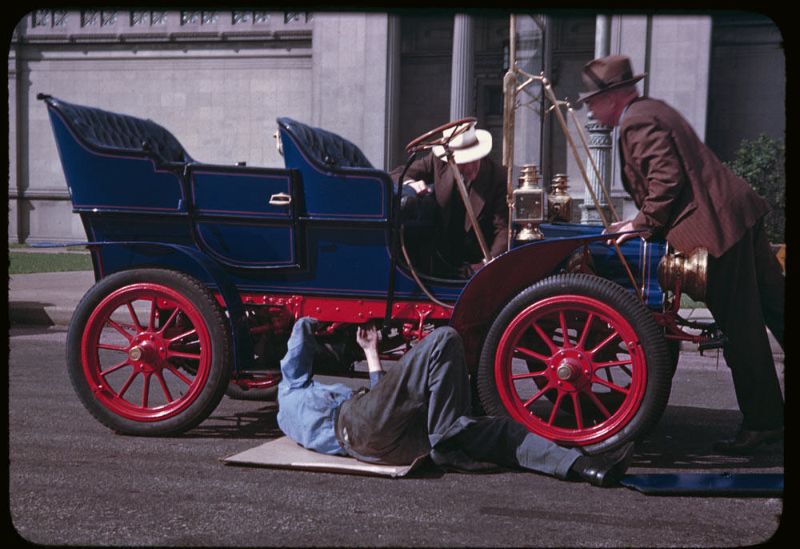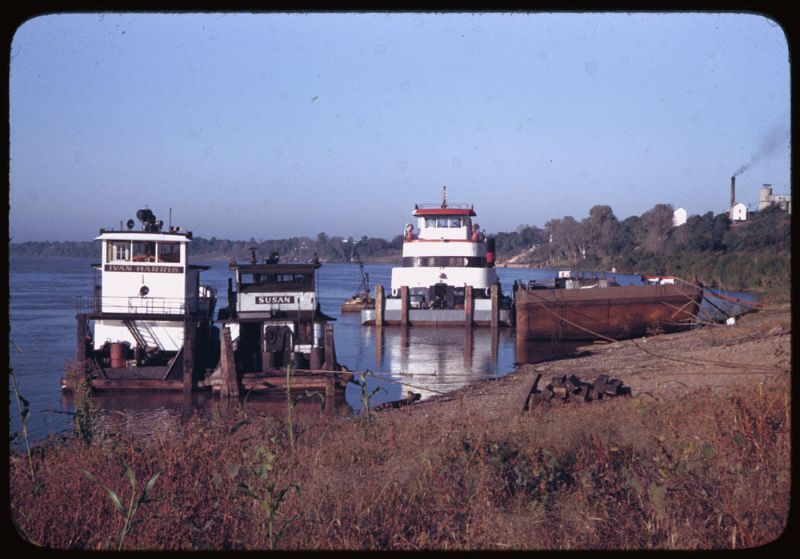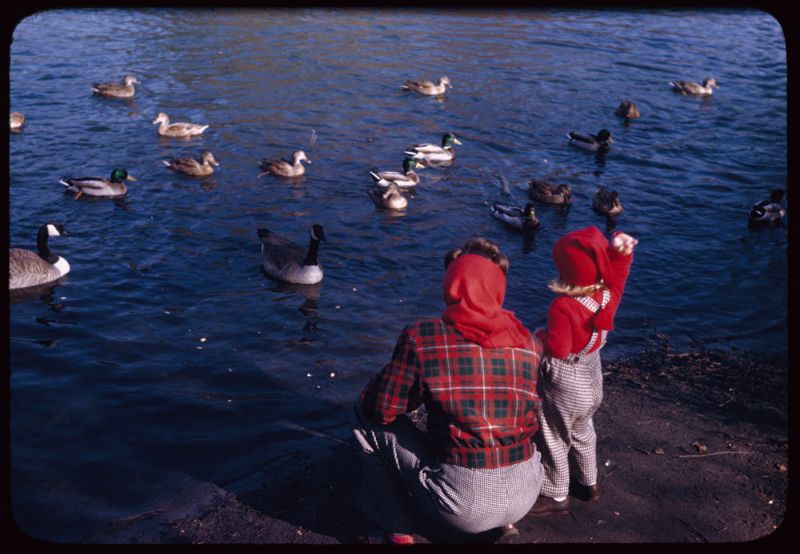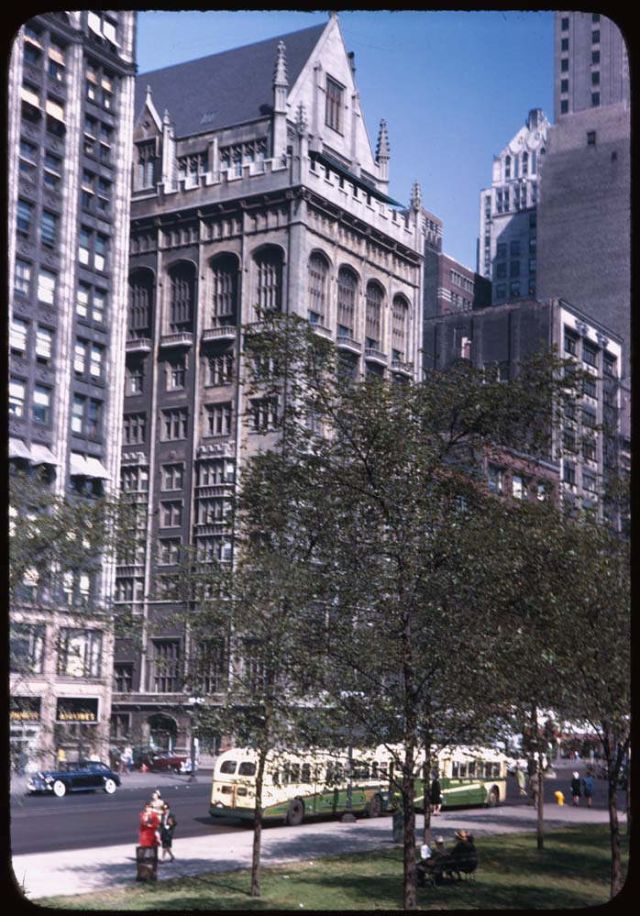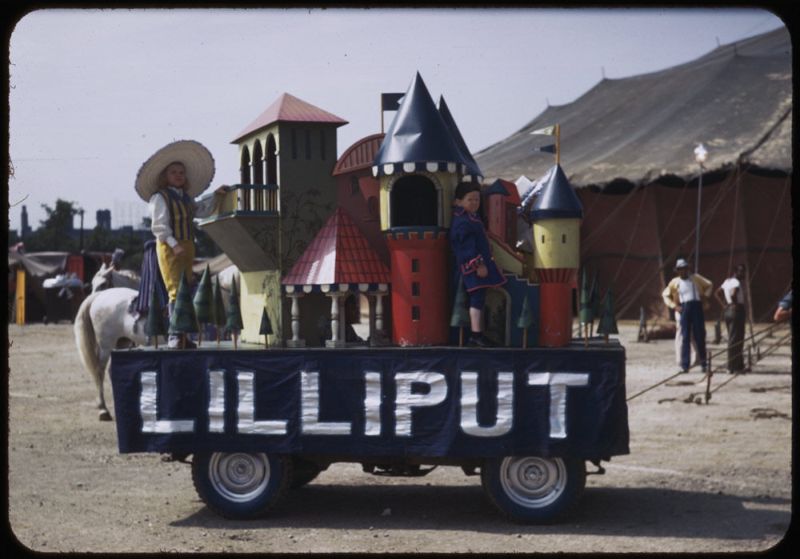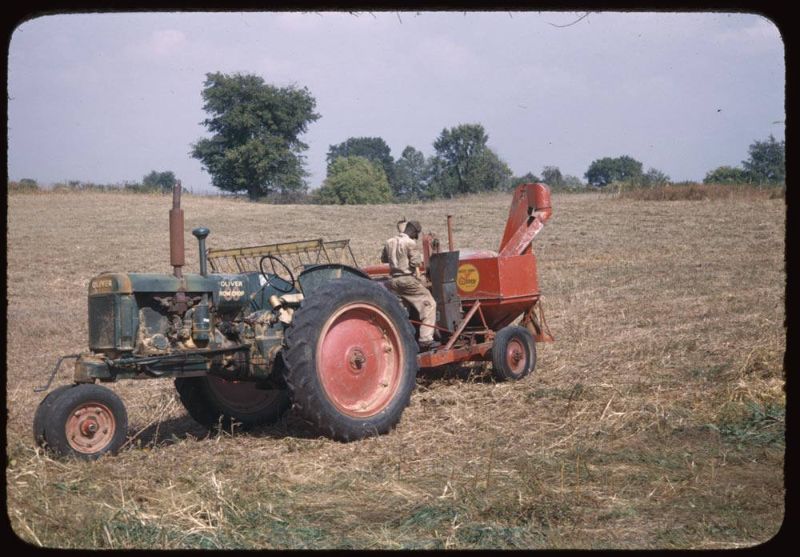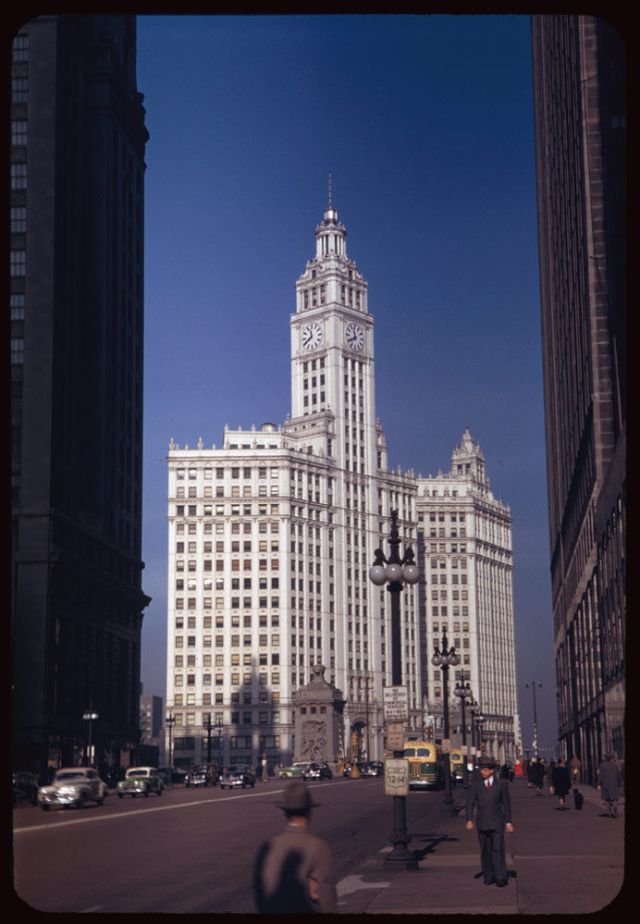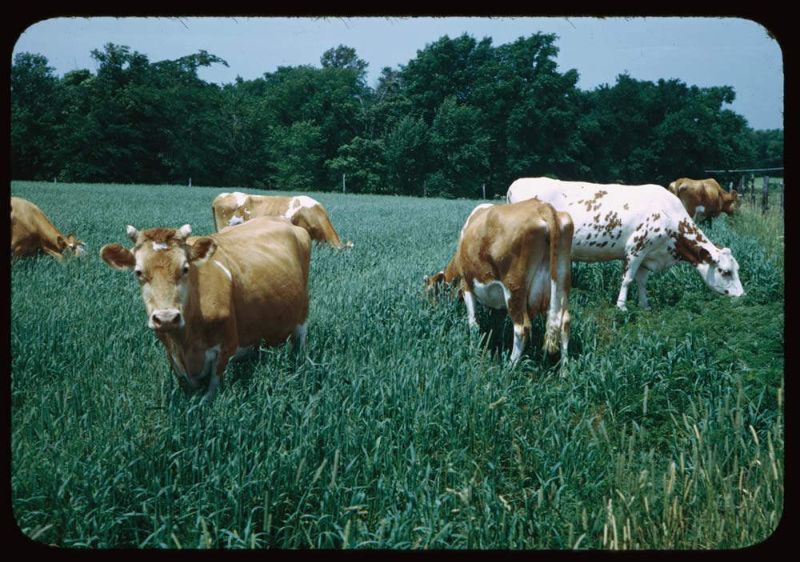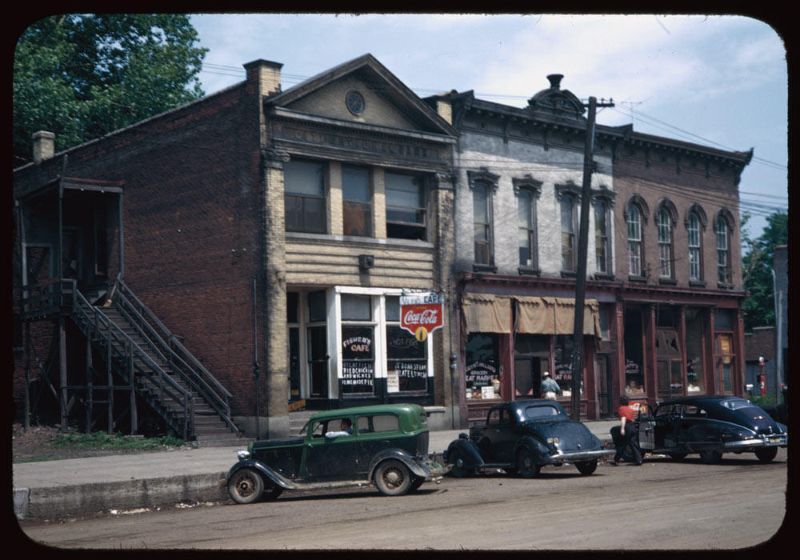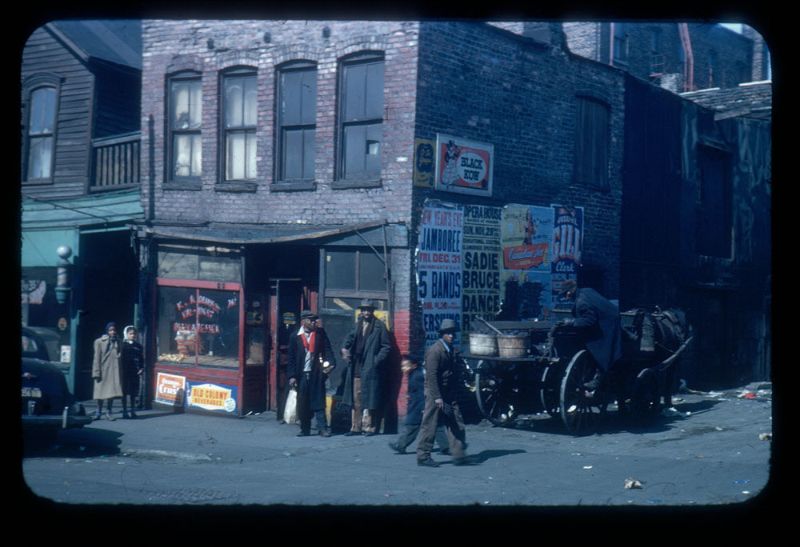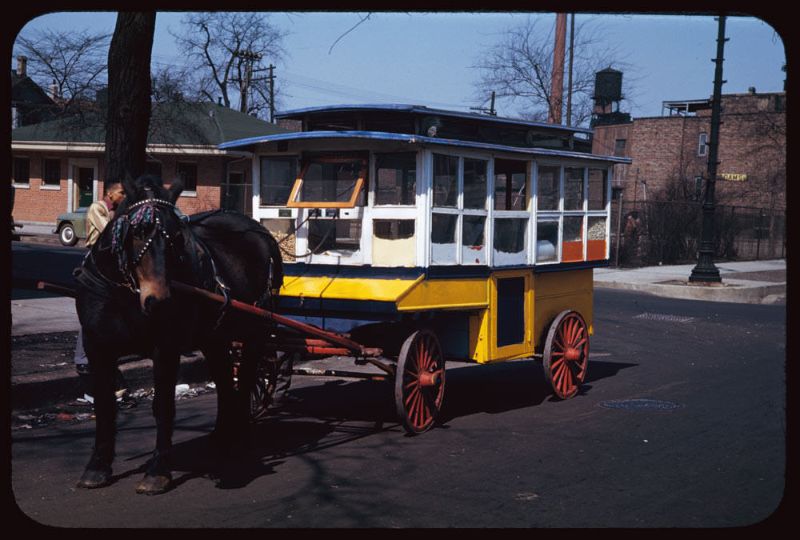These snapshots brought to life through the stunning hues of Kodachrome film, transport us to a time when the country was poised on the threshold of change, painting a vivid backdrop to the era’s challenges and triumphs. The streets of cities like New York, Chicago, and Los Angeles pulsed with the energy of a nation at work, even as the war effort occupied the foreground. Industrial might was a hallmark of this era, as factories ramped up production to support the war, and the sight of women wearing coveralls and gloves became emblematic of their expanding roles in the workforce. The city streets witnessed the rhythms of the working class, with uniformed men and women commuting en masse, united in a common purpose. The neighborhoods of these cities were microcosms of diversity and community. Immigrant enclaves, neighborhoods defined by cultural identity, flourished in urban pockets. These photos were taken by Charles Weever Cushman (1896-1972), an amateur photographer and Indiana University alumnus, who bequeathed approximately 14,500 Kodachrome color slides to his alma mater. His photographs cover a thirty-two-year period from 1938 to 1969, during which he extensively documented the United States as well as other countries. Kodachrome film, introduced by Kodak in the 1930s, revolutionized color photography and offered an unparalleled opportunity to capture life’s spectrum in all its brilliance. The foundation of Kodachrome’s success lies in its innovative trichromatic approach to color capture. In 1935, Kodachrome film debuted as a two-color system, employing layers sensitive to blue and green light. Subsequent advancements, such as the 1938 introduction of Kodachrome Type A film, incorporated a third layer, responsive to red light, completing the tri-color spectrum. This intricate multilayer design allowed Kodachrome to meticulously replicate the color spectrum in a manner that was unprecedented for its time. The distinct processing requirements of Kodachrome posed a notable departure from conventional black-and-white film. It necessitated a complex development procedure wherein the color dyes forming the image were created directly within the emulsion layers during processing. This unique approach to development engendered the vibrant, long-lasting colors that have come to characterize Kodachrome imagery. (Photo credit: Charles Weever Cushman / Library of Congress). Notify me of new posts by email.
Δ Subscribe


